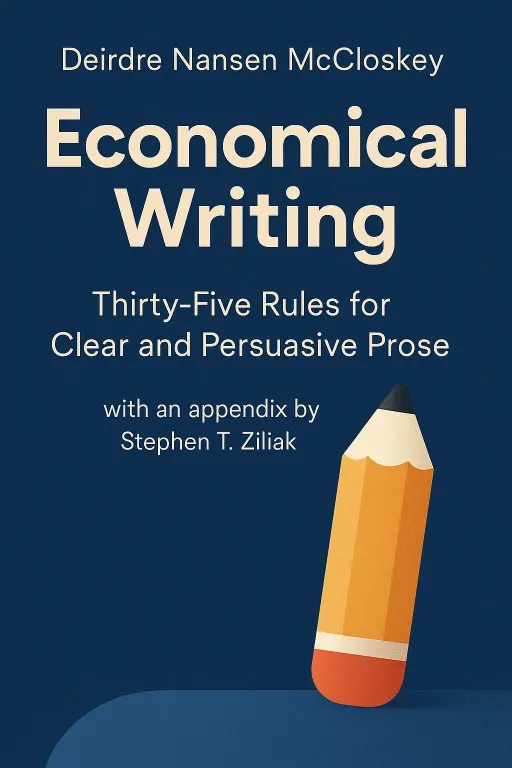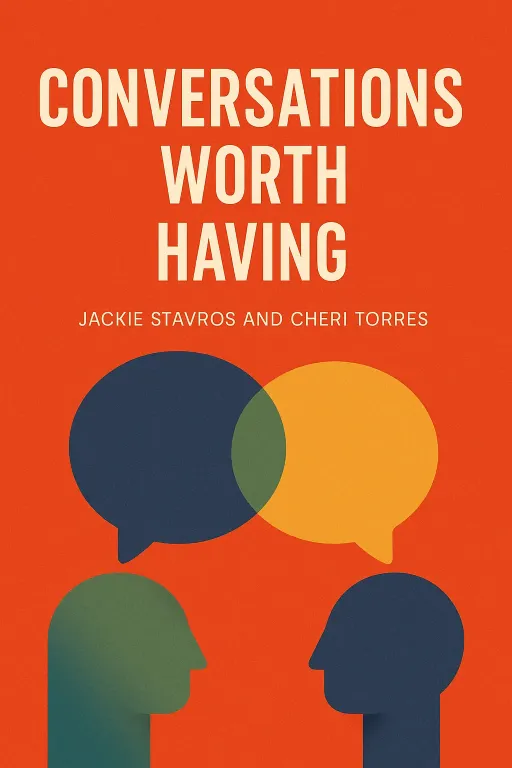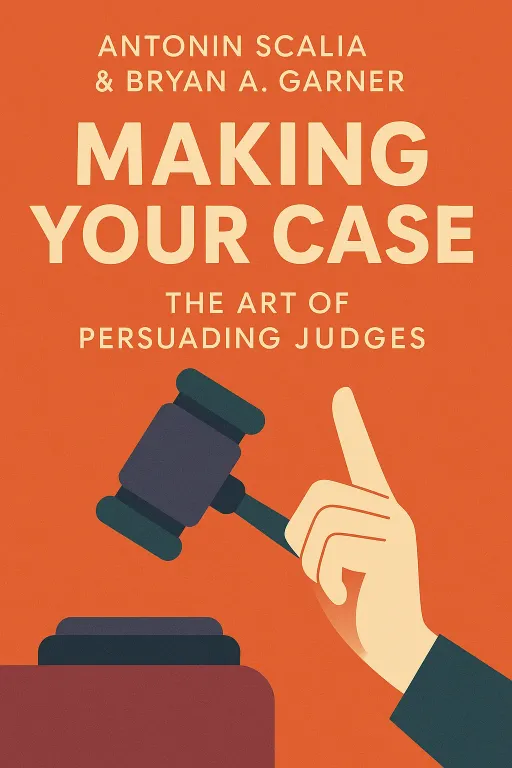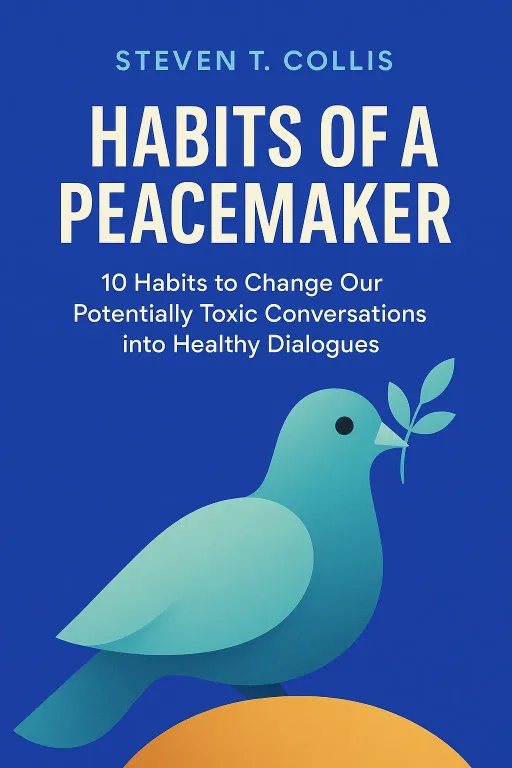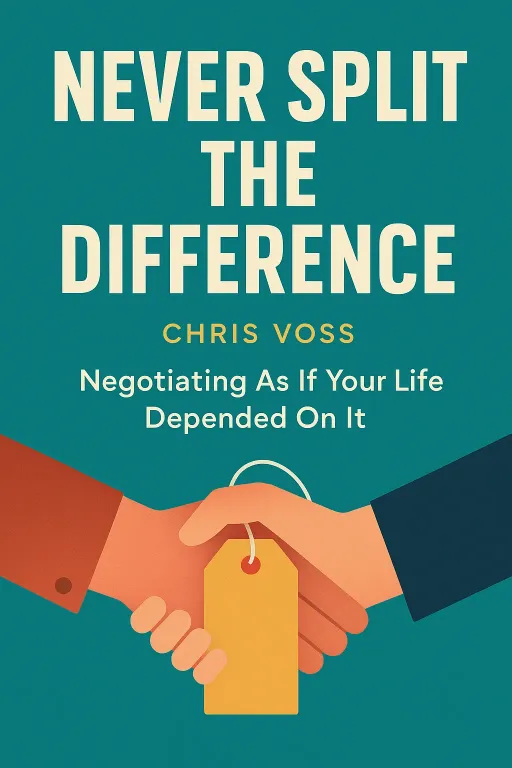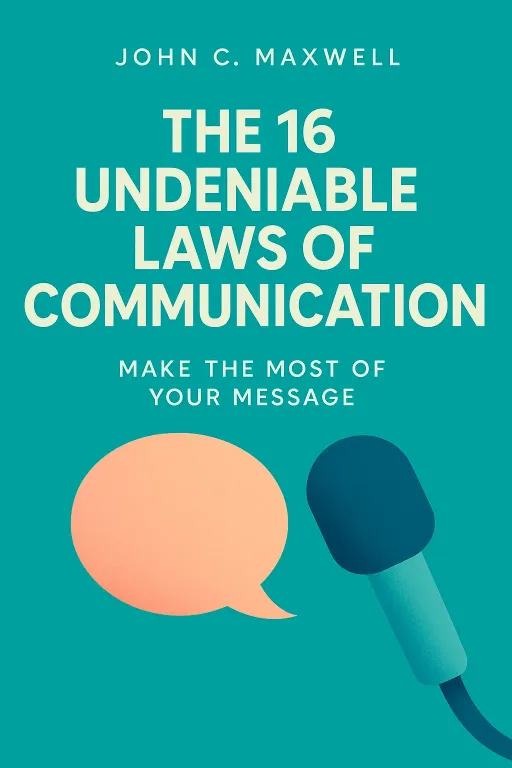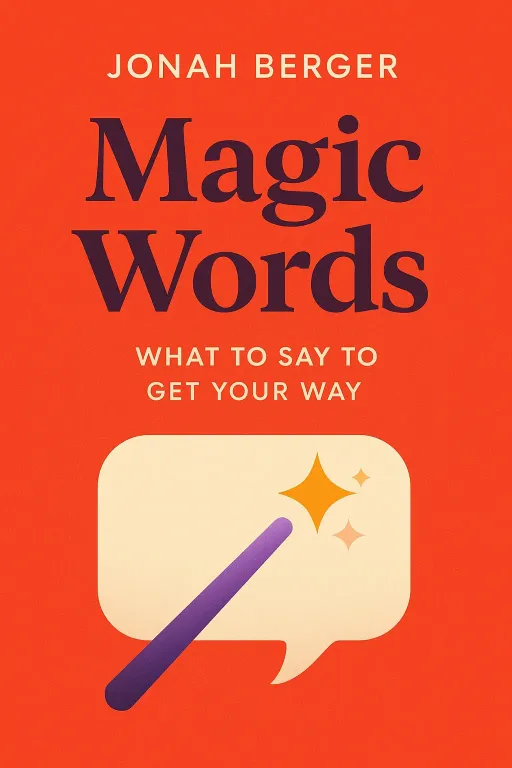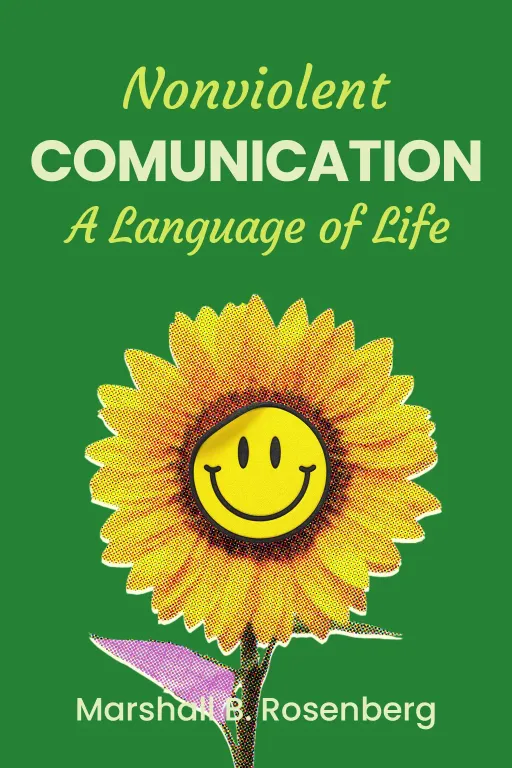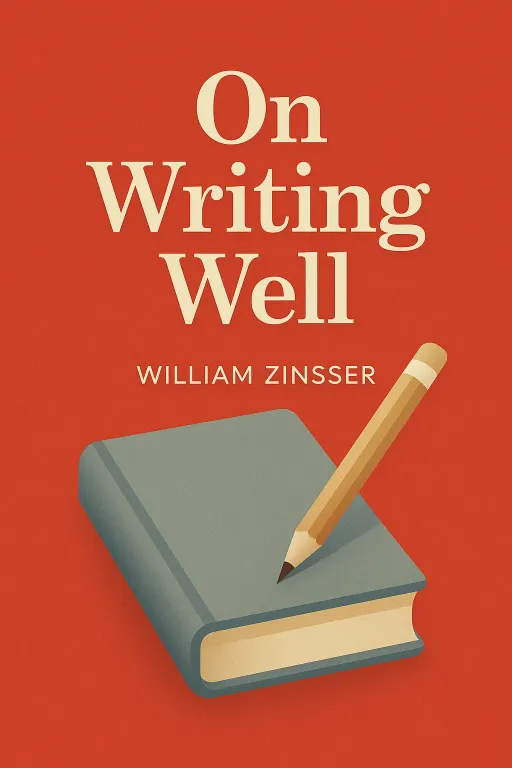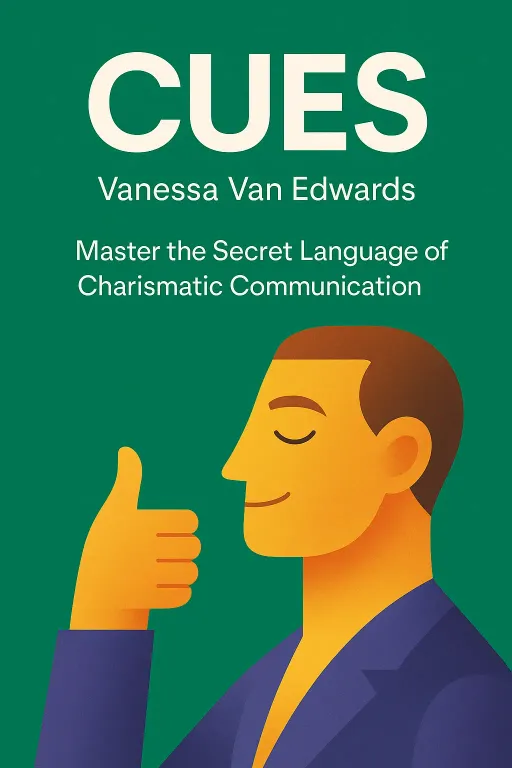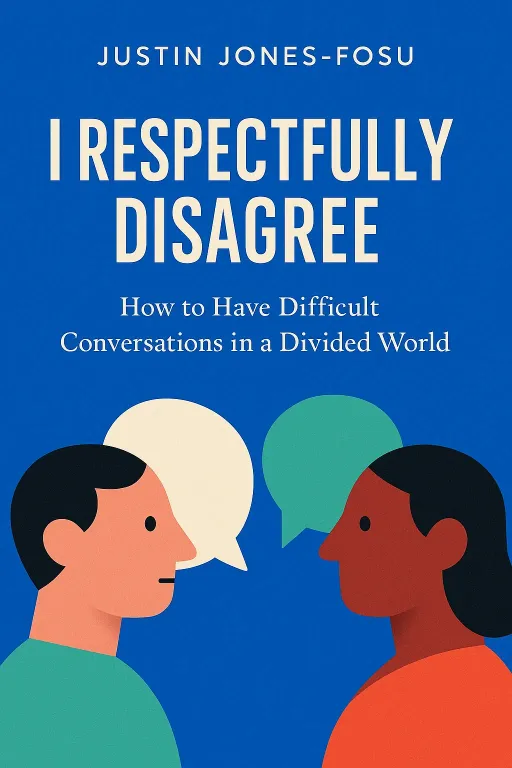
Respectfully Disagreeing with Aretha
11 minHow to Have Difficult Conversations in a Divided World
Golden Hook & Introduction
SECTION
Michelle: Alright Mark, pop quiz. Who is the undisputed, universally acknowledged Queen of Respect? Mark: Oh, that’s easy. There’s only one. The Queen of Soul, Aretha Franklin. R-E-S-P-E-C-T. Find out what it means to me. It’s an anthem. Michelle: It is an anthem. But what if I told you that for today's divided world, that anthem might be giving us the exact wrong advice? Mark: Whoa, hold on. You’re coming for Aretha? That’s a bold move, Michelle. A very bold move. What could possibly be wrong with demanding a little respect? Michelle: That’s the core question, isn't it? The 'demanding' part. We’re diving into a book today that flips that idea on its head. It’s called "I Respectfully Disagree" by Justin Jones-Fosu. And it argues that in our polarized world, waiting for respect to be earned or demanding it is a recipe for failure. Mark: I’m intrigued. And I know this book has been getting a lot of attention. Readers seem to love it for being so practical and timely. Who is this author, Justin Jones-Fosu, who’s brave enough to challenge the Queen of Soul? Michelle: That's what makes his perspective so powerful. He's not an academic in an ivory tower. Jones-Fosu has a deep background in human resources and has led diversity and inclusion initiatives for multiple Fortune 500 companies. He's been in the trenches of workplace conflict, which gives his advice this incredible, real-world grounding. He’s seen what works and what doesn't when real people, with real biases, have to get along. Mark: Okay, that adds some serious weight. He’s seen the theory crash into reality. So, if Aretha's model of demanding earned respect is flawed, what’s the alternative he’s proposing? What’s the secret sauce?
Golden Respect vs. Aretha Franklin's Respect
SECTION
Michelle: He calls it "Golden Respect." And it’s a radical shift. The respect Aretha sings about is conditional. It’s transactional. You treat me right, you get my respect. You don't, and all you'll get is the "sock it to me" part. Golden Respect is the opposite. It’s unconditional. Mark: Unconditional? That sounds… difficult. You’re saying I have to respect someone who is actively being disrespectful to me? Or someone whose views I find genuinely harmful? Michelle: That’s the challenging part. Jones-Fosu defines Golden Respect as the choice to acknowledge and value the shared humanity in every single person, regardless of whether you agree with them, like them, or even if they respect you back. It’s not about validating their opinion; it’s about validating their humanity. It’s a gift you give, not a prize they win. Mark: A gift you give. I like the framing, but it feels almost superhuman. It’s one thing to say it, but another to do it when your blood is boiling. Does he give any examples of what this looks like in the real world? Michelle: He gives an absolutely breathtaking one. He tells the story of Patrick Hutchinson during a Black Lives Matter protest in London in 2020. The atmosphere was incredibly tense, with counter-protesters clashing with the marchers. Mark: I think I remember seeing a photo from that. It went viral. Michelle: Exactly. In the middle of this chaos, a white counter-protester gets separated from his group, falls, and is injured. He’s surrounded by an angry crowd. And in that moment, Patrick Hutchinson, a Black man, a personal trainer who was there to support the protest, makes a choice. He doesn't see an enemy. He sees a human being in danger. Mark: What did he do? Michelle: He and his friends formed a protective circle around the man. Then, Hutchinson hoisted this man onto his shoulders and carried him through the hostile crowd to safety. Later, Hutchinson said something that is the perfect definition of Golden Respect. He said it wasn't about agreeing with the man or his views. It was about preventing a disaster. He said, "It’s not about them. It’s about us." He chose to act from his own humanity, not in reaction to the other man's ideology. Mark: Wow. That gives me chills. To have that clarity and grace in a moment of pure chaos is just… astounding. It’s a superhero move. But it also highlights the problem, right? For most of us, in a much less intense situation—a political argument with a relative, a disagreement with a boss—our first instinct is the complete opposite of that. We don't protect; we attack. Why is our default setting so far from Golden Respect? Michelle: That is the million-dollar question, and it’s where the book gets really deep and personal. Jones-Fosu argues that we can’t practice Golden Respect until we understand the invisible forces that are actually running the show during our disagreements.
The Invisible Scars That Shape Our Arguments
SECTION
Mark: Invisible forces? That sounds a little spooky. What are you talking about? Michelle: He’s talking about our past. The book introduces this brilliant concept called "Life Disagreement Markers," or LDMs. These are pivotal moments from our past—often from childhood—that left an emotional scar and now dictate how we behave in conflicts today. Mark: So it’s like emotional muscle memory. An old injury that still twinges when the weather changes. Michelle: That’s a perfect analogy. Think about the family you grew up in. Was it a "we don't discuss politics at the table" kind of house, where conflict was avoided at all costs? If so, you might have a "flight" response as an adult—you shut down or withdraw. Or was it a house full of loud debaters, where everyone yelled to be heard? You might have a "fight" response—you escalate and get aggressive. Most of us are just re-enacting these old scripts without even realizing it. Mark: That makes a terrifying amount of sense. You’re not just arguing with your partner about who was supposed to take out the trash; you’re suddenly ten years old again, feeling unheard by your parents. Michelle: Exactly. And to show how deep this runs, the author shares one of the most vulnerable and powerful stories I’ve ever read in a book like this. He talks about his own childhood. Mark: Oh, I read a bit about this. It’s incredibly raw. Michelle: It is. He reveals that as a child, he was physically and emotionally abused by his older brother. He describes this one horrific incident where he was brutally attacked and then lied to his mom, saying he fell down the stairs, to protect his brother. For years, he carried that trauma. And he realized as an adult that in any disagreement, no matter how small, he would instantly snap into "fight" mode. He was overly aggressive, always needing to win. Mark: That’s heartbreaking. Michelle: But here’s the breakthrough. He realized he wasn't fighting the person in front of him. He was still fighting for that terrified little boy who couldn't defend himself. His adult arguments were controlled by this LDM, this ghost from his past. And the only way he could break the cycle was by confronting it and, eventually, choosing to forgive his brother—not for his brother's sake, but for his own. To free himself from that prison. Mark: Wow. For an author to share that level of personal pain to make a point… that’s commitment. It completely reframes the idea of a simple argument. It’s not just about what’s being said; it’s about what’s being triggered. Michelle: Precisely. It’s about understanding that when someone is reacting in a way that seems completely out of proportion, you’re probably not seeing the full picture. You’re seeing the tip of an iceberg, and their LDM is the massive, hidden part underneath. Mark: Okay. So, this is huge. We start with the ideal—Golden Respect. Then we do the internal work to understand our own invisible scars, our LDMs. That’s the 'what' and the 'why.' So what’s the 'how'? Once we have this awareness, what’s the actual game plan for having a better, more respectful disagreement?
From Black-and-White Battles to Finding the 'Gray'
SECTION
Michelle: This is where the book becomes a practical toolkit. Jones-Fosu lays out what he calls "The 5 Pillars of Bridging the Divide." They are: Challenge Your Perspective, Be the Student, Cultivate Your Curiosity, Seek the Gray, and Agree to Respect. Mark: That’s a solid list. The one that jumps out at me is "Seek the Gray." It feels like the opposite of how our entire culture operates right now. Everything is black or white, you’re with us or against us. Michelle: That’s exactly why he focuses on it. He says we approach disagreements with one of two mindsets: the Competitor or the Collaborator. The Competitor sees a debate to be won. The Collaborator, or what he calls the "Discoverer," sees a challenge to be explored together. Seeking the gray is the work of the Discoverer. It’s about resisting the urge to see things in simple binaries and instead looking for nuance, complexity, and common ground. Mark: It’s about moving from "me versus you" to "us versus the problem." Michelle: You got it. And he uses the ultimate example to show this isn't some soft, idealistic notion. It's a strategy of immense strength. He talks about Nelson Mandela. Mark: A masterclass in seeking the gray if there ever was one. Michelle: Think about it. The man is unjustly imprisoned for 27 years by a brutal, racist regime. When he is finally released, the world expects him to demand vengeance. It’s a classic black-and-white, good-versus-evil scenario. He has every right to be a Competitor. Mark: And nobody would have blamed him. Michelle: But he doesn't. He chooses to be a Discoverer. He initiates dialogue with the very people who imprisoned him. He listens to their fears. He acknowledges their humanity, even as he condemns the system of apartheid. He wasn't trying to win the argument of the past; he was trying to build a shared future. He was actively, strategically seeking the gray in a situation that the rest of the world saw as pure black and white. Mark: That’s a world-changing perspective. It shows that seeking nuance isn't about compromising your principles or being weak. It’s the most powerful way to actually create change. It’s about understanding that the path forward is almost never a straight line. It's about finding what the book calls that collaborative 'C' together, instead of just fighting over your 'A' and my 'B'. Michelle: And that’s the whole point. It’s a shift in the entire goal of the conversation.
Synthesis & Takeaways
SECTION
Mark: So when you put it all together, it’s a really clear path. You start with this radical choice to offer Golden Respect. Then you look inward to understand the old wounds, the LDMs, that are sabotaging you. And finally, you use a practical toolkit, like seeking the gray, to change the goal from winning to understanding. Michelle: Exactly. The book takes you on that full journey. And the deepest insight, for me, is that this isn't just about being "nice" or learning a few communication tricks. It’s a profound act of personal freedom. When you choose Golden Respect, when you choose to seek the gray, you are refusing to let someone else’s behavior dictate your own. You’re breaking free from the prison of your own reactivity. Mark: You’re taking back control of your own humanity. I love that. The book is filled with these practical tips, but if there’s one thing listeners could try this week, what would you suggest? Michelle: There’s a simple but powerful one he offers. The next time you’re in a disagreement, and you feel that defensive wall go up, just try using the phrase, "Tell me more." It’s three simple words, but they are a powerful switch. They instantly shift you from a mode of attack to a mode of curiosity. It signals to the other person, and to yourself, that your goal has changed. Mark: That's brilliant. It's a pattern interrupt. It stops the downward spiral. And it leads to a final thought for our listeners. What if, in your next difficult conversation, your only goal wasn't to be right, but simply to make the other person feel heard? What might change if that was your only metric for success? Michelle: A powerful question to sit with. It could change everything. Mark: This is Aibrary, signing off.
